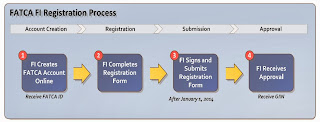 The IRS
issued memorandum SBSE-05-1013-0076 to its Collection employees who are working
Offer in Compromise cases, providing them guidance on when Offers should be
rejected under "Not in the
Best Interest of the Government" or "Public Policy" basis.
The IRS
issued memorandum SBSE-05-1013-0076 to its Collection employees who are working
Offer in Compromise cases, providing them guidance on when Offers should be
rejected under "Not in the
Best Interest of the Government" or "Public Policy" basis.While these provisions may be well-intentioned, they most probably will result in a Subjective Exception to an otherwise, long-standing, objective measurable criteria of Doubt as to Collectibility (DATC).
This may result in allowing Collection employees to reject an Offer based solely on their Subjective Dislike of a particular Taxpayer or of the Taxpayer’s previous lifestyle (including but not limited to, having owned exotic cars, boats, etc.).
Situations that may warrant
rejection as
“Not Being in the Best
Interest of the Government"
1. The taxpayer's offer meets processability
criteria. However, the taxpayer has an egregious history of past noncompliance,
as evidenced by the taxpayer's failure to voluntarily file correct returns.
NOTE: Future collection potential and the ability to secure a collateral
agreement should be considerations prior to recommending an offer for rejection
under NIBIG.
2.
An
in-business taxpayer compromising employment taxes, where financial analysis
indicates the business does not have the ability to fund the offer, remain
current with future tax obligations, and meet the business’ normal operating
expenses.
3.
Any
offer involving deferred payment where financial analysis indicates the
taxpayer cannot fund the offer and an acceptable explanation as to where the
additional funds may be secured is not provided.
4. The taxpayer is the primary responsible
party for a related entity, i.e. corporation, partnership, etc., that is not in
compliance with its filing and paying requirements.
5. The offer is from an ongoing business
that appears to be insolvent, will remain insolvent, even if the offer is
accepted, and it appears that the government’s position would be better
protected through a formal insolvency proceeding. Refer to IRM 5.8.10.2.2.1,
Consideration of a Potential Bankruptcy Filing on the Calculation of RCP in an
OIC Investigation.
6. The taxpayer does not have the ability to
fully pay the liability via an installment agreement, yet based on the
evaluation of the taxpayer's financial situation, the amount potentially
received through a PPIA approximates the outstanding balance. Refer to IRM
5.8.4.3(4).
Situations
That May Warrant Rejection
Based on a “Public
Policy Decision”
1. The taxpayer has in the past, and continues to openly
encourage30 se30 sec others to refuse to comply with the tax laws.
2.
Indicators exist showing that the financial benefits of
a criminal activity are concealed or the criminal activity is continuing.
3.
The taxpayer engaged in a pattern of conduct suggesting
intentional dissipation of assets.
Example:
The taxpayer, a payroll service provider, has received from its clients payments of employment taxes in the amount of $10 million.
- The taxpayer remits to the Service an amount equal to the trust fund portion of the employment taxes and designates the payment for application to the trust fund portion of the tax.
- The taxpayer pays no more of the employment tax.
- Meanwhile, the taxpayer
dissipates all of its remaining assets, reducing its reasonable collection
potential to $0.
- The taxpayer then submits an OIC for $10,000.
- Because the OIC exceeds reasonable collection potential, the taxpayer would qualify for the OIC on the grounds of doubt as to collectability.
Taxpayers may now have to resort to bankruptcy
filings, in order to obtain a discharge based upon Doubt
as to Collectibility (DATC).
Source:
IRS
of Marini & Associates, P.A.
or Toll Free at 888-8TaxAid (888 882-9243)
Source:
IRS



















